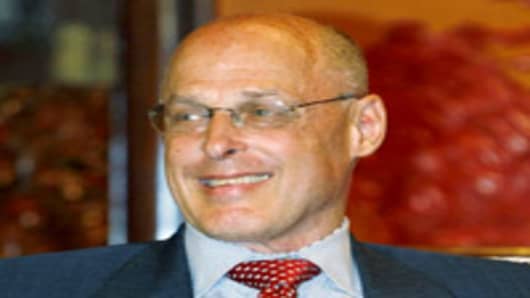As mortgage defaults have risen, credit spigots have begun to run dry and many economists have said U.S. recession risks are on the rise.
Speaking to a community group, Paulson expressed faith the economy would steer clear of a downturn. "Overall, the U.S. economy will continue to grow and is fundamentally sound."
He told reporters he knew there was criticism that the administration's plan to help distressed homeowners interfered excessively with the normal functioning of markets, but he said he disagreed.
"I take real exception to that," Paulson said. "What we're doing is working to prevent a market failure," he said, adding that a wave of home foreclosures would only cause harm to everyone and raise the risk of a broader economic downturn.
Paulson called the current situation, in which an estimated 1.8 million subprime mortgages on owner-occupied homes are due to reset within the next two years, "unprecedented" and said it
required some government involvement to help.
He said the fact that many of the mortgages had been packaged into securities sold around the world made resolving the issue "complex and cumbersome."
"I think the proper role for government is to work with the private sector to avoid a market failure," Paulson said, though he added it will take time to work through the turmoil in
credit markets and in the housing sector.


